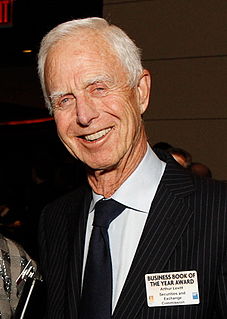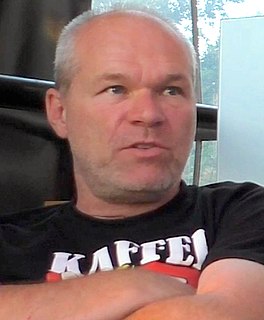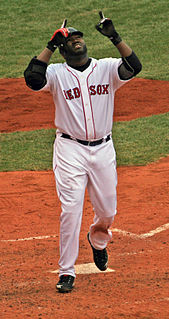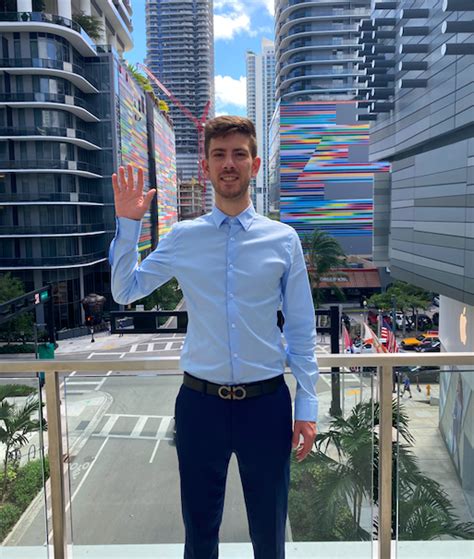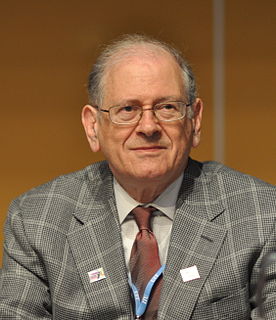A Quote by Arthur Levitt
I think we have got to start thinking about banding together in terms of interested groups.
Quote Topics
Related Quotes
Spaces of liberation are, in a certain way, some kind of social spaces where people can not only get together and think about something else, but also act together. If you are thinking about an elemental solidarity, you are thinking about people acting together and taking decisions together, and thereby beginning to think about what sort of society they want to create. So, there is a need for liberated spaces; that is really difficult.
The main point is that I think if we want the Earth to survive and everybody to have a positive future, we have to stop thinking in terms of religions and races. We have to face that we are all on the planet Earth together, and we have to figure out how we all survive. It makes no sense if we are all driving hybrid cars, but China pumps massive amounts of CO2 in the air. If we don't start working together and find solutions - if every country thinks only in terms of, "First we, then the other nations" - then we will fail.
In the States, there has been, compared to the Sixties and Seventies, a huge retrenchment - not just in poetry - into the personal. A withdrawal from thinking in terms of social and collective values, needs and solutions. The consciousness-raising groups of the women's movement, for instance, becoming "support-groups" or therapy groups.
Even in decision-making, we work in self-help groups. That is women coming together in small groups of 10 to sometimes 15 women, where they start to get education about their rights, about clean water and sanitation, about how to have a healthy birth. You can bring in all kinds of education to them that way.
When you think of everything in terms of just money, then almost nothing is enough. I mean, how much money is enough? Because it's hard to translate money into goods. And I think people, once, I think there's a lot things can believe, and once they start thinking about wealth in terms of money, they lose the idea of enough-ness.
I've got my interests and my life experiences as I'm putting lyrics together. And if you start looking at patterns, you start thinking, 'Well, what am I really singing about here?' A lot of it seems to be a battle for some freedom against oppressive forces. That seems to be a theme in a lot of the albums I've done.
I think people are confused about what the Tea Party is. I mean, they were a broad cross-section of Americans who came together concerned about our debt and our spending. And they're interested in constitutional, limited government. And so they're not one group of people. They're thousands of small groups all over the country.
Provocative... I used to be defensive about it, but in the end, I realised it's exactly right. It's what we're trying to do - to provoke thought and discussion and, you know, shake people up to start thinking about things in a different way. I'm interested in messing with what they think is the norm.
